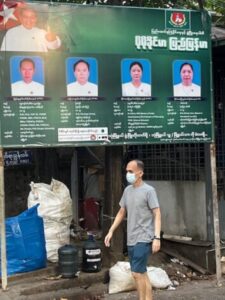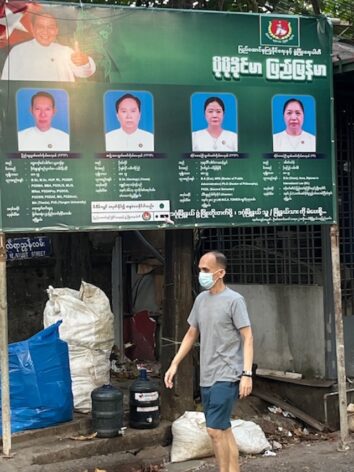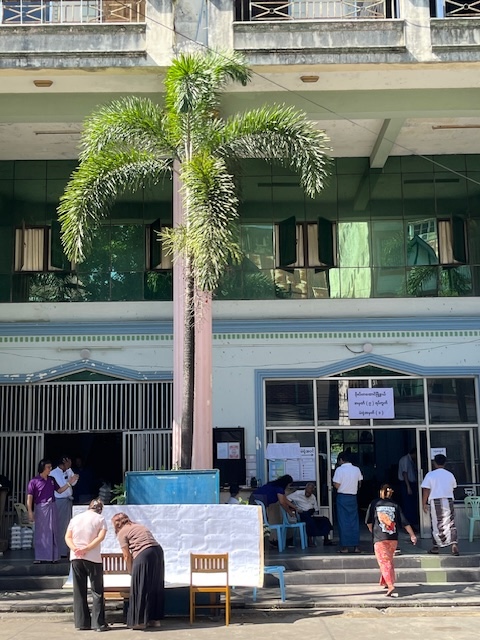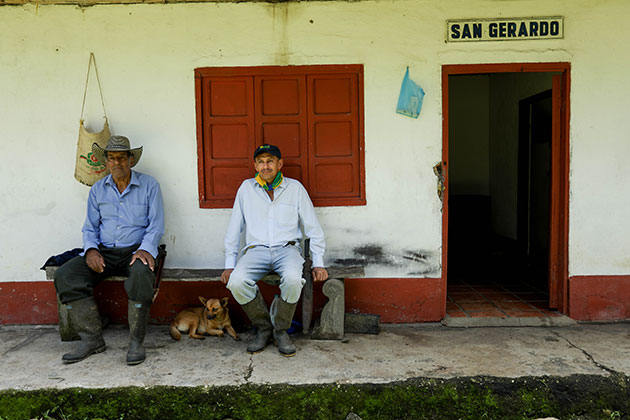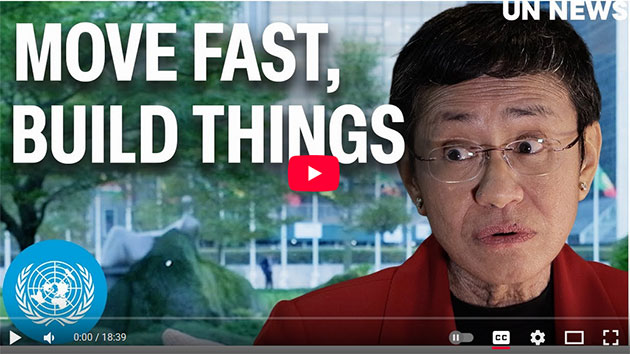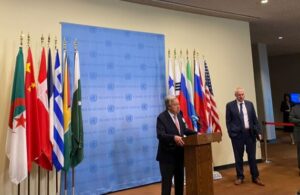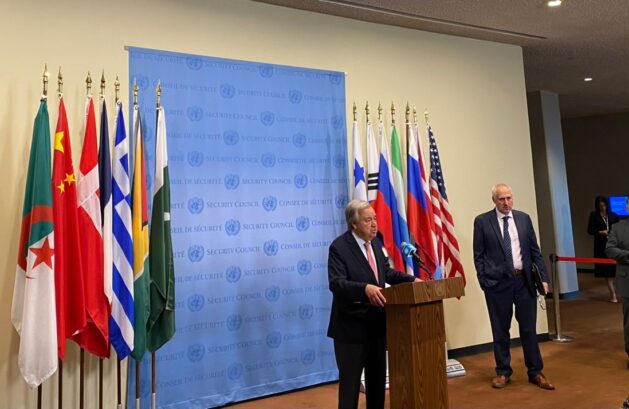
Civil Society, Crime & Justice, Editors’ Choice, Featured, Freedom of Expression, Global, Headlines, Human Rights, TerraViva United Nations

Policing exhibit at the Museum of Weed. An IDPC report paints a picture of an increasingly punitive approach to drugs in some countries, but also highlights reforms. Credit: Bret Kavanaugh/Unsplash
– Drug reform campaigners have called for an overhaul of global drug controls amid an increasingly complex and deadly drug situation in the world and as hardline anti-drug approaches are increasingly being used as cover for repression of civil society and human rights defenders.
A report released earlier this month by the International Drug Policy Consortium (IDPC) assessed progress made since the 2016 UN General Assembly Special Session (UNGASS) on drugs, widely viewed as a potential turning point in global drug policy.
It found that the promise of UNGASS remains largely unfulfilled – despite notable progress in some areas – and that punitive and prohibitionist approaches continue to dominate global drug control, despite their enormous human and financial cost.
“Punitive approaches [to drugs] are costing lives, undermining human rights and wasting public resources, while silencing the very communities that hold the solutions. This report shows why governments must move beyond rhetoric and commit to real structural reform,” Ann Fordham, IDPC Executive Director, said.
Advocates of drug policy reform have for decades pointed to evidence showing how hardline drug policies have completely failed.
The IDPC report documents how current prohibitive policies have, far from curbing drug markets, contributed to their massive expansion and diversification, while at the same time the number of people who use drugs continues to rise and is now estimated at 316 million worldwide – a 28 percent increase since 2016.
The group says repressive policies are also driving devastating and preventable harms. These include: 2.6 million drug use-related deaths between 2016 and 2021, with projections indicating further sharp increases since; mass incarceration – one in five people globally incarcerated are for drug offences – disproportionately affecting marginalised communities; over 150 countries report inadequate access to opioid pain relief due to overly restrictive controls on essential medicines; expanding use of the death penalty for drug offences; and the displacement of illegal drug activities into remote and environmentally fragile regions, including Central America and the Amazon basin, as a result of interdiction and eradication efforts.
Despite this evidence, many countries continue to pursue hardline drug policies.
Fordham said this was because of “the vast vested interests in the status quo”.
“The prison industrial complex is a prime example of this. Our report documents that one in five people in prison are incarcerated for drugs globally, while evidence shows that this strategy has done nothing to reduce the scale of the illegal drug markets,” she told IPS.
The group has also highlighted a worrying return to prominence of ‘war on drugs’ rhetoric – popular in the 1970s and 1980s – which it says is increasingly being used to justify militarisation, repression and violations of international law, including the Trump Administration’s weaponising of ‘narco-terrorism’ narratives to legitimise extraterritorial force and roll back rights, health and development commitments enshrined in the UNGASS Outcome Document.
“Punitive and hard-on-drugs narratives serve other interests for populist leaders, with drug policies being used to scapegoat people who use drugs and other people involved in the illegal drug market for broader societal issues, including homelessness and increases in levels of violence.
“Drug control is also increasingly used to restrict civil society space by threatening or attacking civil society and community organisations promoting much-needed reforms and condemning their governments for egregious human rights violations,” said Fordham.
Other drug policy reform advocates and experts have said this trend has become increasingly evident in the last year.
“Over the last year, we can definitely see the emergence of some new [drug policy] trends. First of all, there has been a radical change of rhetoric and narratives under US President Donald Trump’s administration,” Anton Basenko, Executive Director of the International Network of People Who Use Drugs (INPUD), told IPS.
He also highlighted how governments are using drug policy as a cover for breaches of international law to further other political aims, citing the claim by the US administration that the recent abduction of Venezuelan leader Nicolás Maduro by US forces was connected to stopping illegal drugs from coming into America.
“Over the last year, there have been completely different narratives from leading countries [on drug policy], like the U.S. And of course, some countries politically are always looking to the U.S. and listening to what they are saying and they might try to replicate something similar politically, using America’s action as an example,” he said.
Other experts fear there is a real risk this could lead to a worsening of wider human rights problems in other countries.
“The shamelessness with which the US is now trampling on international law, using the war on drugs as cover for some of its most egregious violations, is deeply troubling. There is certainly a risk that it licenses other actors to be even more brazen in their abuses of international human rights law regarding drugs and more generally,” Steve Rolles, Senior Policy Analyst at the UK-based Transform Drug Policy Foundation, told IPS.
The IDPC report draws a set of conclusions emphasising the need for reform and modernisation of current UN drug control treaties as well as, among others, a reconfiguration of the global drug control system so that it is orientated on rights, health and development.
The group says this is especially important now as the United Nations prepares to implement system-wide reforms and an independent expert panel begins reviewing the international drug control regime, providing a rare opportunity to “correct course”.
But that call also comes at a time when, as the IDPC points out, the work of organisations which have been successful in driving drug policy reform, as well as the implementation of life-saving harm-reduction programmes, community advocacy and civil society are battling funding crises.
Cuts to foreign aid funding by major donor states, especially the US, over the last year have been devastating for civil society, including groups working to combat HIV and help vulnerable communities, including drug users, around the world. Funding for harm reduction, which has historically been low, is now in crisis, campaigners say.
“In 2022, available harm reduction funding amounted to just 6% of the USD 2.7 billion needed annually. The Trump administration’s decision to halt funding for HIV and harm reduction in 2025 has turned the harm reduction funding crisis into a catastrophe,” said Fordham.
“State-funded and third-sector voluntary services are all feeling the pinch, and even services funded by philanthropy are seeing priorities shift towards emerging crises. Many services will struggle on as best they can, but inevitably there is a terrible cost when services proven to save lives are starved of funds or closed down,” added Rolles.
However, it is precisely because of these funding constraints that it is vital, IDPC argues, that its recommendations are taken on board by global policymakers.
“The funding constraints and current challenges faced by the UN and multilateralism more broadly make our recommendations all the more important. The current system is clearly outdated and harmful, only serving to undermine health, human rights, development, human security, and environment protection – all the key objectives that the UN was created to uphold in the first place,” said Fordham.
But while the IDPC report paints a picture of an increasingly punitive and prohibitive approach to drugs in some countries, it also highlights significant progress in the introduction of more progressive policies in a number of countries.
These include important policy shifts in many jurisdictions towards decriminalisation and the legal regulation of cannabis, both for medical and recreational purposes.
Hundreds of millions of people now live in jurisdictions where recreational cannabis is legal, with markets having been created in Africa, Asia, Europe, and the Americas. The IDPC report also suggests a renewed interest in psychedelics may soon drive a new wave of regulatory innovation.
“Just over 10 years ago, nowhere in the world had legally regulated adult-use cannabis. Today more than 500 million people live in over 40 jurisdictions with some form of legally regulated adult access… for me, this demonstrates how reforms that seemed impossible just a few years ago are now being realised on every continent,” said Rolles.
He added that there had been “notable progress [on drug policy reform] across the last decade, including the continuing wave of cannabis reforms across the Americas, the EU and much of the world; the spread of innovative harm reduction in response to the opioid epidemic; progress on decriminalisation in other jurisdictions; and an increasingly sophisticated reform narrative gaining traction in high-level forums – including endorsements for reform, including regulation of all drugs”.
“An increase in jurisdictions legalising and regulating cannabis feels inevitable. There are strong movements and political support for change in a number of Latin American and European countries,” Rolles said.
These reforms were driven in large part by non-state and civil society organisations – those same organisations which are seeing their funding and the freedom to press their case increasingly shrinking in many states.
But drug policy reform advocates are not expecting progress to stop despite the challenges such groups face.
“Almost all of the [cannabis legal regulation] reform has been driven by civil society advocacy, rather than top-down leadership from governments. Just as with harm reduction and decriminalisation reforms over the past decades, civil society is showing the leadership where elected politicians so often fall down. This will doubtless continue to be the case going forward. This is the moment to step up the fight, not to cower in the face of rising authoritarianism,” said Rolles.
IPS UN Bureau Report

